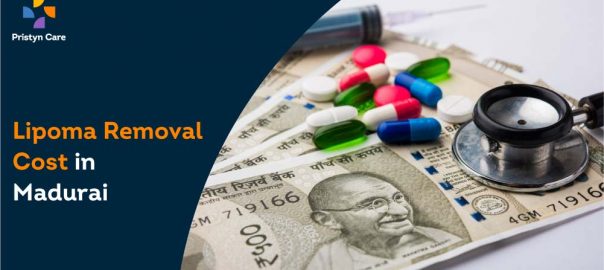![]() Views: 3,009
Views: 3,009
What to Expect After Lipoma Surgery?
Dedicated Support at Every Step!
Our Doctors are available 24 hours a day, 7 days a week to help you!
Call Us0806-541-7961Table of Contents
Understanding Lipoma Surgery
Lipoma surgery typically involves making an incision in the skin and removing the fatty lump. There are several surgical methods that your doctor might use, including simple excision, liposuction, or minimal excision extraction. The choice of method usually depends on the size and location of the lipoma, as well as your overall health condition.
Regardless of the surgical method used, it's normal to experience some swelling after lipoma surgery. This is your body's natural reaction to the tissue trauma caused by the surgery. Applying cold compresses and taking over-the-counter pain relievers can help ease this discomfort.
One potential risk following lipoma surgery is infection. It's crucial to follow your doctor's post-operative care instructions to prevent this. These may include keeping the wound clean and dry and avoiding strenuous activities. If you notice any signs of infection, such as increased pain, redness, swelling, or pus discharge around the surgical site, contact your doctor immediately.
Your diet after lipoma surgery also plays an integral part in your recovery. Eating a balanced diet rich in protein can promote wound healing and boost your immune system.
It's also important to remember that everyone recovers at their own pace after lipoma surgery. Some people might be back to their normal activities within a few days, while others may need a few weeks for complete recovery.
No Cost EMI, Hassle-free Insurance Approval
Immediate After-effects of Lipoma Surgery
Physical Changes
The period immediately after lipoma surgery can bring a number of physical changes. You might experience swelling at the site of the operation, which is a common part of your body's natural healing process. Pain is another factor that you might encounter, but the intensity usually decreases over time. A temporary loss of sensation near the area where your lipoma was removed is not uncommon either.
Emotional Changes
Emotionally, it is common to feel a mix of relief and anxiety after a lipoma operation. You may feel relieved that the lipoma has been removed, but it's also natural to worry about things like swelling after lipoma surgery or potential complications. Some individuals may also experience feelings of depression. It's important to share these feelings with your family physician or seek professional help if these emotions persist.
Post-Surgery Care and Recovery After Lipoma Surgery
After your lipoma surgery, proper care and attention can go a long way in ensuring your recovery is smooth and uneventful. Here are some things to keep in mind post-surgery:
- Wound care is critical to prevent causes of lipoma infection after surgery. Keeping the surgical area clean and dry while also regularly changing dressings according to your doctor's instructions is paramount.
- Your doctor will likely prescribe certain medications to help manage pain and prevent infection. Remember to take these as directed by your doctor. If you notice any unusual symptoms like increased pain, fever, or pus from the wound, contact your doctor immediately.
- In the initial phase of recovery after lipoma surgery, you will be advised to limit certain activities that might strain the surgical area. Gradually, as the wound heals, you'll be able to return to your normal routine.
- Watching for signs of complications is crucial too. If you notice increased swelling or redness, intense pain, or feel unwell in general, these could be signs of an infection or other medical issue that needs immediate attention.
- Maintaining a balanced diet after lipoma surgery can contribute to faster healing. Include protein-rich foods for tissue repair, fruits and vegetables for vitamins and minerals, and hydrate yourself sufficiently.
These guidelines can help ensure that your journey towards recovery after lipoma surgery is as smooth as possible. Remember, every person's experience is unique, and the most important thing is to listen to your body and communicate openly with your doctor.
MBBS, MS-General Surgery, M.Ch-Plastic Surgery, DNB-Plastic Surgery
₹2000₹1000Consultation Fee
M.B.B.S, M.S. (General Surgery), M.Ch. (Plastic Surgery), DrNB (Plastic Surgery)
₹2000₹1000Consultation Fee
MBBS, MS - General Surgery, M.Ch. - Plastic Surgery
₹2000₹1000Consultation Fee
MBBS, M.S.(Gen. Surgery), DNB (Gen. Surgery), F.MAS, D.MAS, FAIS, FALS, FIAGES
₹2000₹600Consultation Fee
Dr. Balasundaram Kutty Alalasundaram
MBBS, DNB-General Surgery, M.Ch- Plastic Surgery
₹2000₹600Consultation Fee
MBBS, DNB-General Surgery, DNB-Plastic Surgery
₹2000₹600Consultation Fee
MBBS, MS-General Surgery, M.Ch- Plastic Surgery
₹2000₹600Consultation Fee
M.B.B.S , M.S , M. Ch Plastic & Reconstructive Surgery
₹2000₹1000Consultation Fee
Dr. Bhagyashri Bhalchandra Talele
MBBS, MS-General Surgery, M.Ch-Plastic Surgeon
₹2000₹600Consultation Fee
Frequent Follow-ups and Monitoring
After undergoing a lipoma surgery, it's paramount that you keep regular appointments with your doctor. These frequent follow-ups facilitate a comprehensive monitoring of your recovery progress. During these sessions, any unusual signs, such as swelling after lipoma surgery, can be caught early and addressed promptly.
Your doctor will evaluate the surgery site for signs of infection, which could potentially cause complications in the future. Understanding the causes of lipoma infection after surgery is also an integral part of these sessions. Regular check-ups promote early detection of any possible recurrence and ensure your healing is on track.
Long-term Impacts and Lifestyle Adjustments
Once you've sailed through the initial stages of recovery after lipoma surgery, you might wonder, what happens next? While the operation is usually straightforward, there could be long-term impacts like scarring or risk of recurrence. It's crucial to be aware of these possibilities to manage your expectations and prepare adequately.
Maintaining a healthy lifestyle is one way to mitigate these impacts. A balanced diet after lipoma surgery can aid your body's healing process and help maintain a healthy weight. Regular exercise not only keeps weight in check but also improves overall health, helping deter the recurrence of lipomas.
Frequent follow-ups and careful monitoring are imperative after lipoma surgery. Being mindful of potential long-term effects and making necessary adjustments to your lifestyle can go a long way in ensuring a smooth recovery process.
In summary, it is essential to highlight the importance of being well-informed about what happens after lipoma surgery. A crucial part of a patient's recovery journey involves an understanding of the potential changes and challenges that might be faced during the post-operative phase, such as swelling after lipoma surgery and managing lipoma infection after surgery.
FAQs
- What can I expect right after my lipoma surgery?
Right after your lipoma surgery, you might experience some pain and discomfort in the area where the lipoma was removed. The doctor will prescribe painkillers to manage this. You may also notice some swelling after lipoma surgery, which is a normal part of the healing process. - How long does recovery after lipoma surgery take?
Recovery times can vary based on the size and location of the lipoma, as well as your overall health. On average, most people return to their normal activities within 1-2 weeks after the operation. - Can there be a recurrence of lipoma after surgery?
Yes, there is a slim chance that a lipoma might reappear in the same location after surgery. If you notice any unusual growths following your recovery, it's important to contact your doctor immediately. - What happens if I notice swelling after lipoma surgery?
Some degree of swelling is expected after lipoma surgery. However, if it persists or you notice redness, warmth, or severe pain, you should seek medical attention as these might be signs of an infection. - What could be the causes of lipoma infection after surgery?
Infections after surgery could be due to bacterial contamination during or after the procedure. Following your doctor's instructions on wound care can help prevent this. - Are there any dietary restrictions I should follow after lipoma surgery?
There are no specific dietary restrictions following lipoma removal. However, a balanced diet rich in fruits, vegetables, lean proteins and whole grains can aid in your recovery. - Is it normal to feel pain during recovery after lipoma surgery?
Mild discomfort and pain are common following lipoma removal, especially in the first few days. Your doctor will provide medications to manage this. - How can I reduce my risk of infection post-surgery?
Adhering to your doctor's instructions for wound care, including cleaning the area and changing dressings, can significantly reduce your risk of infection. - Will I be able to see or feel the scar from the surgery?
Yes, there will be a small scar where the incision was made. However, this usually fades over time and becomes less noticeable. - What steps can I take to ensure a smooth recovery after lipoma surgery?
To ensure a smooth recovery, follow your doctor's post-operative care instructions, maintain a healthy diet, stay hydrated, get plenty of rest, and avoid strenuous activities until cleared by your doctor.











